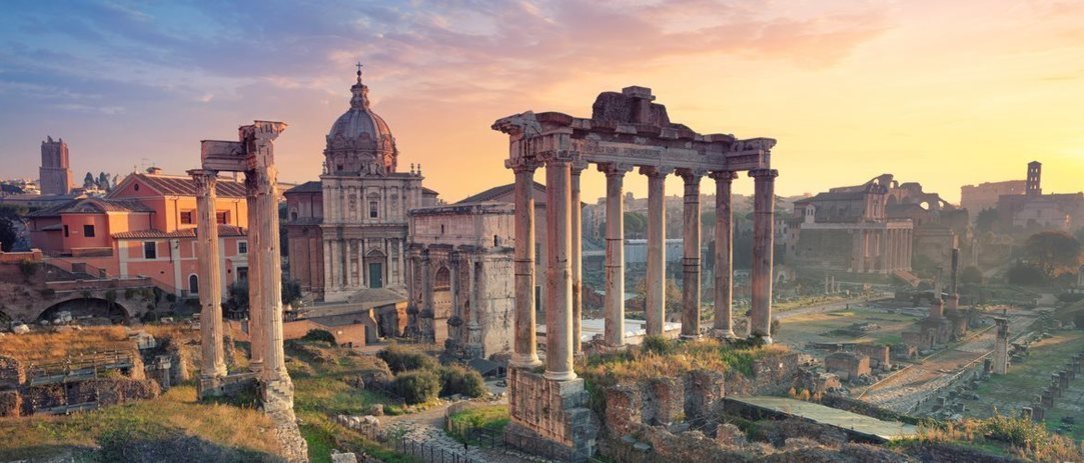Vespasian: Year of the Four Emperors
Posted on 20th March 2023
Just before midnight on 8 June, AD 68, the Emperor Nero rose from a deep sleep to find no sentry at his door, no one standing watch over him and that the Palace Guard had deserted. As he went from room to room, he could find neither courtier nor slave and when he called for a gladiator to protect him none could be found. He was alone, in a panic and with just four personal attendants who had come at his cries to accompany him he fled Rome to the villa of a friend some four miles outside the city where he heard the news that the Senate had declared him a public enemy. It was now every Roman citizen’s duty to kill him or do him harm.
Nero had been losing his grip on power for some time – he had ignored the empire he ruled in pursuit of the art he loved, he had raised taxes to punitive levels to pay for vanity projects no one cared for, he had offended the elite with his increasingly outrageous behaviour, created a climate of fear by his arbitrary use of power and had lost the trust of the people following the Great Fire that had destroyed so much of the city. Moreover, he had neglected to care for his legions.
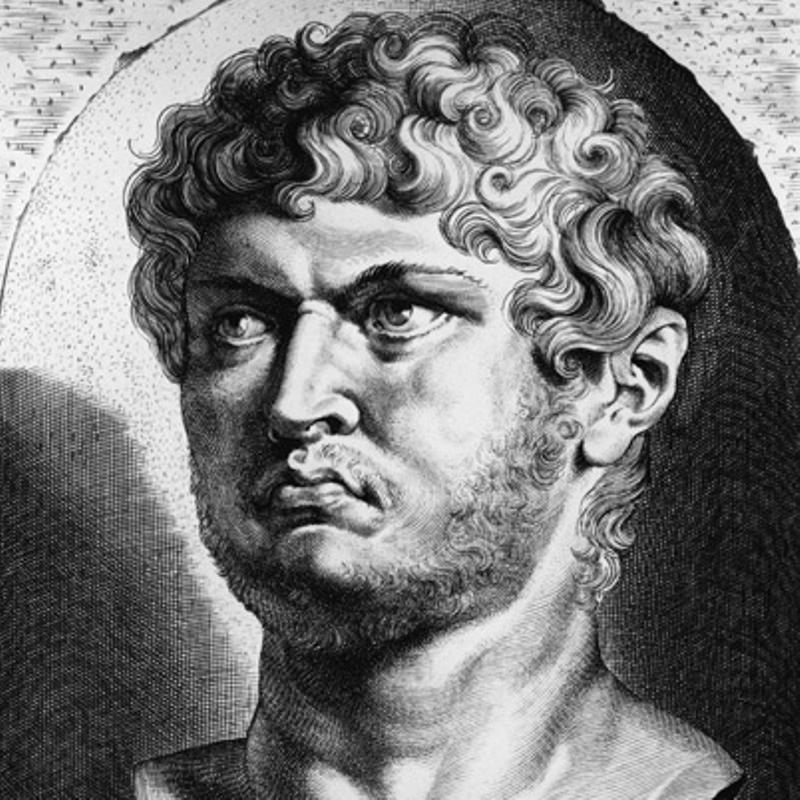
As Nero fretted in isolation uncertain what to do the Senate met and offered the Imperial Crown to the 71-year-old military veteran and Governor of Spain, Servius Sulpicius Galba. Upon learning of this Nero at first thought of fleeing to the Eastern Provinces and raising them in his defence or of remaining in Rome and rallying the people who had once so adored him to come to his aid. Perhaps, he could throw himself upon the mercy of Galba whom he had never harmed. But he knew in the end it was all fantasy and that he faced either an honourable suicide, a grubby murder, or the humiliation of public execution. He would choose suicide but unable to do the deed himself he had his servant Epaphroditos to thrust a sword first into his chest and then his neck. His last words were, “What an artist I die.”
Nero had been childless, and his death left no obvious successor so though Galba was the preferred choice of the Roman political elite there were many others who considered themselves just as good candidates to wear the Imperial Purple. Those who feared the prospect of civil war and that chaos would now ensue did so with some justification.
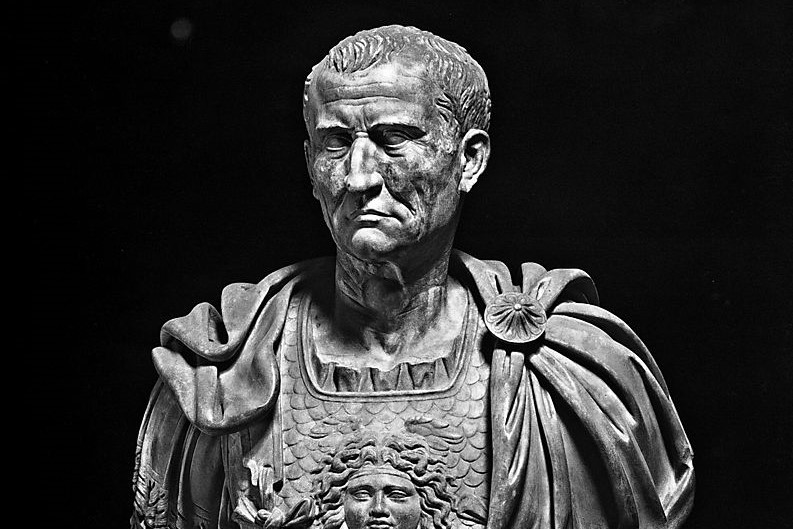
Galba, who had been declared Emperor by the Senate, was on his way to Rome but until he arrived there would be a vacuum of power in the city one the Prefect of the Praetorian Guard Nymphidius Sabinus now tried to fill. Fortunately, for those Senators now in hiding his men would not follow him but the city remained nonetheless tense.
Upon his arrival in Rome, Galba acted decisively. He had Sabinus executed and when a number of those Praetorians who had refused to obey the Prefect approached him demanding a reward for doing so, Galba had them executed also. Yet despite going about his business with vigour the Emperor's appearance shocked those Senators summoned to appear before him. He had not been seen in Rome for many years and he was no longer the robust man some remembered instead he was pencil-thin, gaunt, and weather-beaten. Indeed, he looked old and tired but as an austere old-school disciplinarian he would be obeyed. So those he thought might oppose him he had executed without recourse to the Law Courts, raised taxes to pay for Nero’s excesses, and refused to reward either the Praetorian Guard or the Garrison of Rome for merely doing their duty -he was in other words making few friends.
In early January AD 69, news reached Rome that the Legions on the Rhine had refused to swear an oath of loyalty to Galba and had declared their own Commander, Marcus Aulus Vitellius as Emperor. Galba knew that given his advanced age people would be making plans to secede him, so he tried to pre-empt this by nominating his own successor his close ally and right-hand-man Calpurnius Piso. But instead of stabilising the situation this just seemed to inflame matters even more it being argued that Galba was a political appointment and had no right to name his successor.
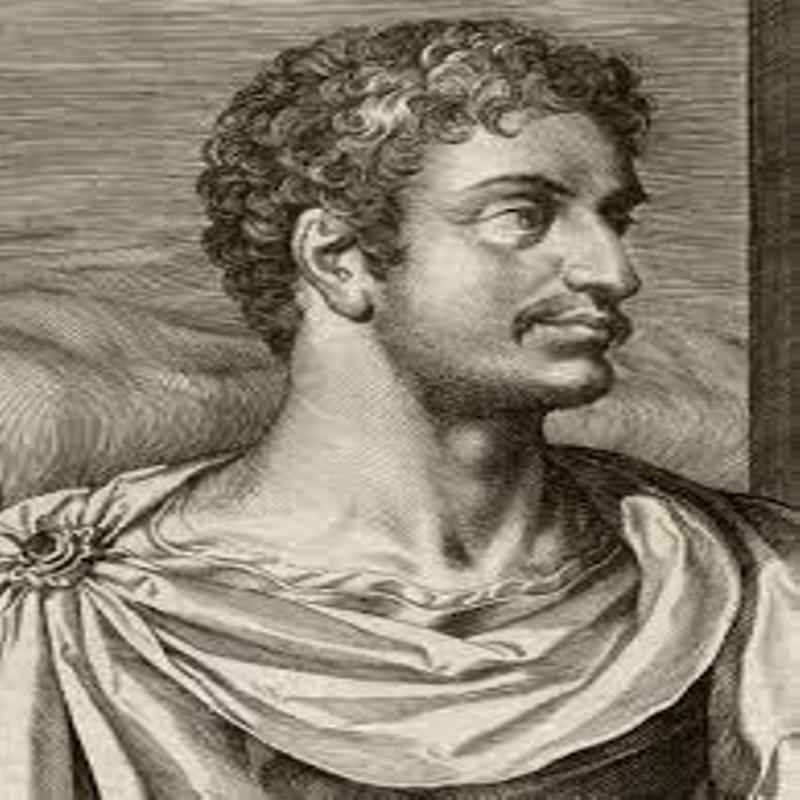
Marcus Salvius Otho, who had earlier supported Galba but now resented being passed over for the succession was secretly negotiating with the Praetorian Guard for their support. Learning of this a furious Galba decided to confront the Praetorian Guard but on his way to their barracks he was intercepted by a unit of Otho's cavalry who he convinced through personality alone it seems to escort him to his destination. Still, too weak to walk Galba had to be carried on a litter but he did not allow his infirmity to dampen his ire. He ordered the Praetorian Guard to line up before him, disarm and pledge their loyalty. He was at first greeted with silence but soon there began to be heard whistles and jeers. Unable to stand Galba sat up in his litter but when he again tried to speak, he was heckled and shouted down. Indeed, they began to laugh at this pathetic specimen of manly prowess. In desperation Galba showed them his neck and declared: "Strike me here if you think it would be good for Rome." Someone did decapitate him, and his severed head was taken to Otho who ordered that it be stuck on a pole and paraded around his camp for all to see. He then declared that he would richly reward the man who had struck the decisive blow and so many men came forward, 120 it was said, that he had a list drawn up and evidence had to be provided.
On 15 January, the Senate, which now had little choice in the matter declared Marcus Salvius Otho as their Emperor. He ordered the immediate execution of the unfortunate Calpurnius Piso, but even as he was securing his position and accepting the acclamation of the crowd another with pretensions to Imperial Majesty was marching on Rome.
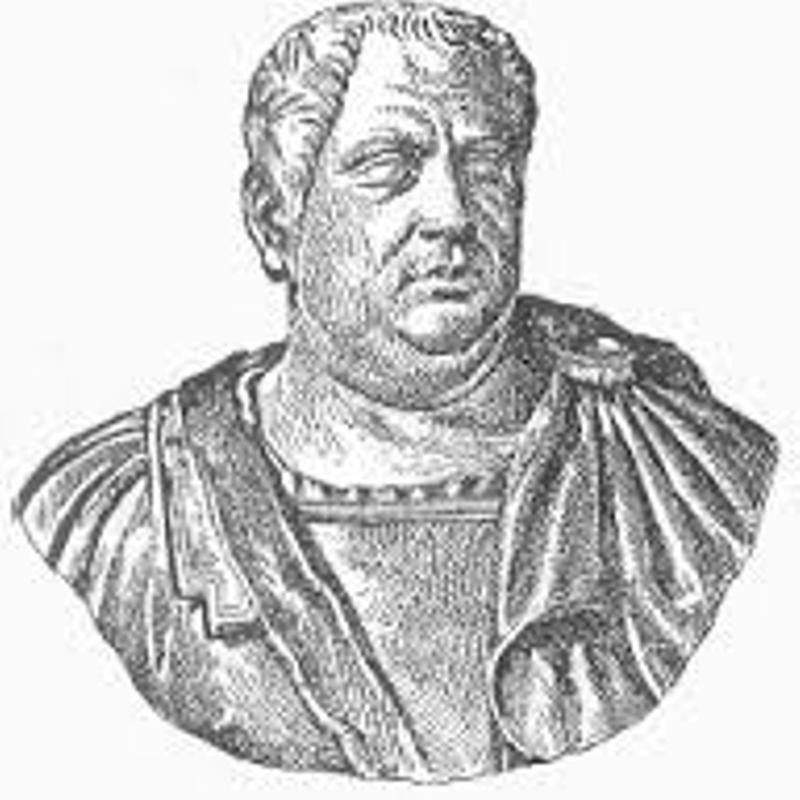
Marcus Aulus Vitellius had been appointed by Galba to replace him as Commander of the Legions in Lower Germany. A strange choice given that Vitellius was a politician who had little military experience but then Galba who was hated by his own troops for his parsimony if nothing else may have thought that as such he would pose no threat. If so, he was mistaken for even though Vitellius may have had little to say in the matter those who had previously been under Galba’s command were quick to proclaim him Emperor, and like any Romans worthy of the name he was as ambitious as Lucifer.
Meanwhile in Rome, Otho was settling down to a job for which he appeared to have all the attributes - he was 36 years old, physically strong, and proven in battle. But he was also notoriously vain and easily distracted. Conscious of his lack of height he wore built up shoes, and balding he had taken to wearing a wig. He also used makeup to hide his facial blemishes of which he had many. Yet, he was by no means cruel and seems to have been genuinely liked by those who knew him. His faults were manifest however being lazy, pedantic, and prone to change his mind. He did not inspire confidence and was to prove a man of straw.
Aware that Vitellius was advancing on Rome he at first tried to persuade him to take a share in the running of the Empire but even before negotiations had properly got under way, he'd changed his mind and began preparing for war. Indeed, he was so impatient for battle that he advanced his forces to confront Vitellius's army even before they had been fully mustered and as a result at the ensuing Battle of Bedriacum he was soundly beaten but it had by no means a rout.
His Generals advised him that with his army still intact and with further troops arriving all the time he still held the advantage. Hostilities, they said, could be resumed on the morrow. But Otho had lost his nerve and refusing to listen to advice to the contrary he declared that all was lost and retired to his bed. When he awoke in the morning, he took his own life.
Otho has since been praised for sacrificing his own life to prevent Rome from sliding into civil war. It was a convenient myth for self-sacrifice wasn’t on his mind as his willingness to confront Vitellius shows. Rather, he was a man who lacked resolution and not wanting to endure the indignities forced upon his predecessor chose the easy way out. Nevertheless, he was buried with all the pomp and ceremony that could be expected at the funeral of a former holder of the Imperial Purple.
Marcus Aulus Vitellius, who had not been present at Bedriacum and had only journeyed to Rome once victory had been assured, was declared Emperor by the Senate in Rome on 16 April, but much of the rest of the Empire refused to acknowledge him as such.
A notorious drunkard and glutton it was said he carried his portly frame and booze-addled face as if it was a badge of honour. He could also be capricious and cruel. One of the first things he did was to have all those who appeared on Otho's list as the men who had murdered Galba, tortured, and executed.
But while Vitellius sat in Rome eating and drinking to excess and issuing death warrants, the Eastern Provinces of his Empire had declared for Titus Flavius Vepsanianus as Emperor.

Vespasian, as he was known was a man of low birth, his father having been a debt collector, who’d had to work hard all his life just to gain a modicum of respect and like many men of his background whose prospects seemed bleak he chose the army for a career and both sober and hard-working he was to rise rapidly through its ranks. By AD 41 he was commanding a legion during the Emperor Claudius's invasion of Britain. He also gained a foothold on the political ladder when he was appointed Quaestor in charge of street cleaning.
Military success finally earned him a term as Consul in AD 51, but not long after he fell out with Claudius's new wife Agrippina and was forced to retire. A return to political life faltered when he dared to fall asleep during one of Nero's interminable performances. Forced once again into retirement he could dwell on a distinguished career for one of his background, but it had hardly been glorious. His fortunes would change however, when in AD 66, the Roman Province of Judea rose in revolt.
Nero, whose Empire was descending into chaos and who had already disposed of several of his most able Generals, victims of the on-going Treason Trials, was forced to call upon Vespasian to suppress it. He relished the opportunity, and accompanied by his son, Titus, he travelled east determined to make his mark at last.
He was thorough and ruthless from the outset - villages were razed to the ground, crops destroyed, and the populace massacred or sold into slavery. But it was a tough fight, the Jews were a stubborn people, and he soon put to one side any thoughts of a swift and glorious victory.
On 21 June, AD 68, he captured and destroyed the town of Jericho and was at last able to advance on Jerusalem itself where he would prepare for a long siege.
Vespasian may well have been ruthless where his enemies were concerned but he always treated his own troops well and ensured they were rewarded for their endeavours, and they in turn were devoted to him. He knew he could rely upon their loyalty.
But he was far from Rome and when news reached him of Nero’s deposition, he was uncertain what to do. Things were changing so rapidly in Rome that being a cautious man by nature it seemed impossible for him to keep up. In the end the decision would be made for him when on 3 July, his Legions declared him their Emperor. He now grasped an opportunity that he knew might never come again. Leaving his son Titus in command in Judea with orders to capture Jerusalem he departed for Egypt to secure the grain supply that would guarantee him the support of the Roman people. In the meantime, those Legions he had available to him advanced on Rome led by his General, Marcus Antonius Primus.
Vitellius at first appeared unperturbed at the threat posed by Vespasian. After all, neither his reputation nor that of Antonius Primus was such that it sent shivers down the spine, and he thought he could deal with comfortably enough but when their two armies clashed on 24 October at the Second Battle of Bedriacum it was his forces that were routed.
Fleeing back to Rome he desperately sought to open negotiations with the victorious Vespasian but unable to cut a deal he agreed to abdicate the Imperial Crown, resign from the army, retire, and become a private citizen again.
He was on his way to deposit his insignia as Emperor in the Temple of Concorde when he was intercepted by troops of the Praetorian Guard and forced to return to the Imperial Palace where he fretted as to his fate. Tying a money belt around his waist he barricaded himself in his room hoping to delay his capture long enough to be able to speak to Vespasian in person. But a unit of Praetorian Guard had already been sent to murder him.
Dragged screaming from his hiding place in a cupboard he was taken to the Gemonian Steps, stabbed to death and beheaded, his torso was then thrown into the River Tiber.
Vespasian was still in Egypt when the Senate declared him Emperor on 1 July, AD 69.
Rome would be run in his absence by his ally Gaius Lucinius Mucianus, the former Governor of Syria, assisted by, or kept an eye on by Vespasian's second son, Domitian. He would not return to the city until the summer of AD 470.
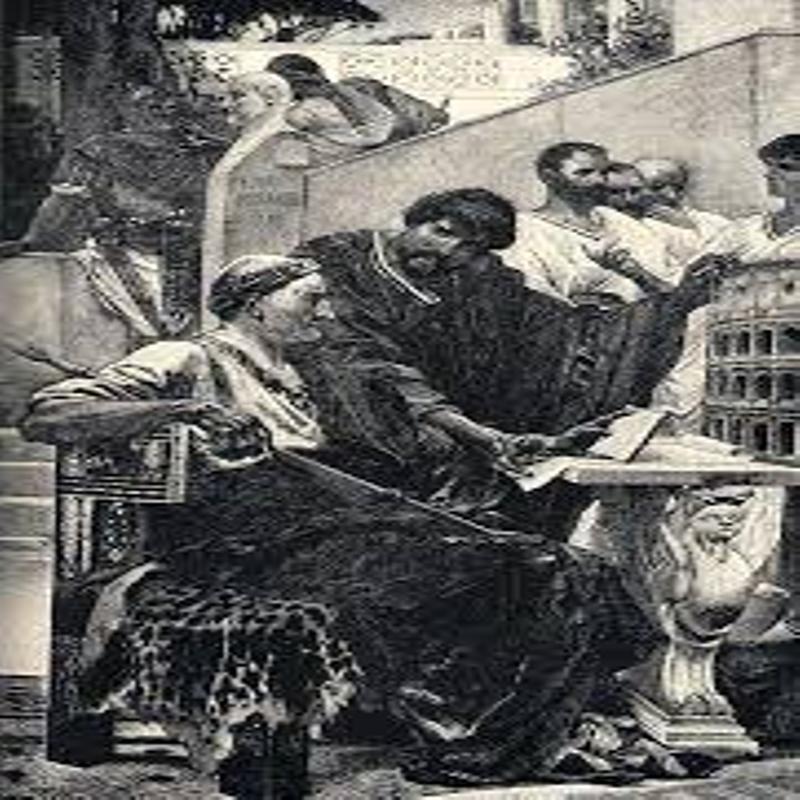
The new Emperor's first task was to put Rome's finances in order after the profligate years of Nero's reign and he ordered Mucianus to restore the old taxes and find new ones where possible. In this Mucianus was thorough removing Greece's fiscal exemption and even taxing the use of public urinals. It wasn't a popular move the imposition of tax never is, but then Vespasian was still out of the country at the time, so he didn't get the blame.
The first few years of Vespasian's reign were to be dominated by war and rebellion.
Jerusalem did not fall to his son Titus until the end of July, AD 470, despite his father’s express orders to quell the rebellion swiftly so he could enter Rome in triumph. Even then the rebellion was to continue for nearly another three years until the capture of the last Jewish stronghold at Masada.
Titus, desperate to impress his father was to be as ruthless as any Roman Commander before him. The Jewish historian and collaborator Josephus reported that hundreds of villages were razed to the ground, 97,000 Jews were sold into slavery while as many as 250,000 may have died in the fighting or from starvation and disease. The Jewish Temple was also ransacked and destroyed with Vespasian using the proceeds to embark upon a massive building programme in Rome including the construction of the Colosseum.
Vespasian's relatively low birth meant that he was never truly accepted as Emperor by many and with no link to the previous dynasty some said his reign lacked legitimacy. Aware of this he embarked upon a massive propaganda campaign - statues were erected, busts of the new Emperor were on sale everywhere, scribes, philosophers, and poets were paid to write positively of his reign, and political support was paid for where necessary. Despite all this his demeanour as a simple soldier and his straight-talking manner made him appear coarse and uncultured and many saw him as unfit to wear the Imperial Purple. It meant he never truly got the respect afforded others before him and that his ten years in power were to be beset by plots and conspiracies.
Once his power had been established however, the naturally amiable Vespasian was to prove no tyrant and rather than react to criticism would often brush it aside. Particularly scornful was his right-hand-man Mucianus who had scant respect for his Emperor and often went public with his criticism. But despite being advised to do so Vespasian, who was admiring of his administrative abilities, took no action against Mucianus settling instead to mock his effeminacy and barely disguised attraction to young men often remarking: "I, at least, am a man."
On 23 June, AD 479, the 69-year-old Vespasian who had been ill for some time took a turn for the worst. Aware that he was dying he requested to be lifted from his bed insisting that: "An Emperor should die on his feet."
Known for his dry and sarcastic wit his last words were, perhaps in reference to some of his predecessors - Vae puto deus fio! - "Oh! I think I'm becoming a God."
By the end of his reign, he had established a new Dynasty –the Flavians – and the succession of his son Titus was to be a peaceful and untroubled one.
Tagged as: Ancient & Medieval
Share this post:





